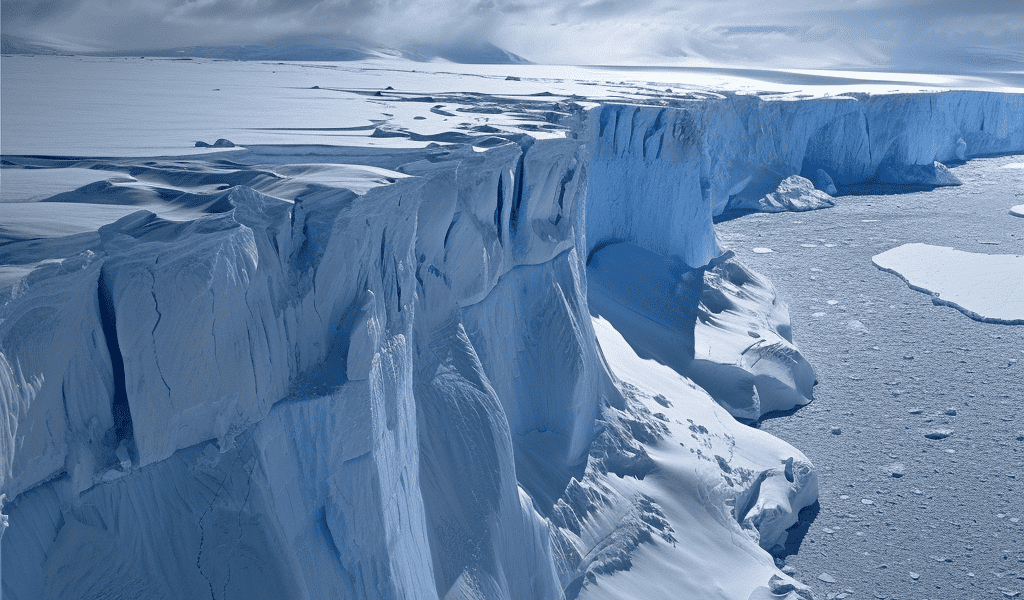Recent research has revealed that the Pine Island Glacier in West Antarctica has undergone an irreversible retreat, crossing a tipping point in the past 80 years. The study, published in the prestigious journal Nature Climate Change, utilized a combination of numerical model simulations and real-world satellite observations to confirm this significant environmental shift.
During the COP28 conference in Dubai, where world leaders were discussing the impacts of climate change, the findings emerged, shedding light on the concerning state of the glacier. Pine Island Glacier, often referred to as the ‘underbelly’ of the West Antarctic ice sheet, has experienced a rapid and unstable retreat, resulting in a substantial loss of ice over several decades.
According to researchers from Northumbria University and Bangor University, the glacier detached from a seabed ridge between the 1940s and 1970s, leading to its accelerated retreat. Despite temporarily stabilizing in the late 1980s, the irreversible loss of ice has been a significant contributor to global mean sea-level rise in recent years.
The study suggests that warm ocean temperatures during the mid-20th century likely triggered the melting beneath the glacier, causing it to retreat from its long-term position on the ridge. Although the accelerated mass loss may have ceased, the glacier had already retreated to a point where recovery of its original mass and position seems unattainable by the early 1970s.





